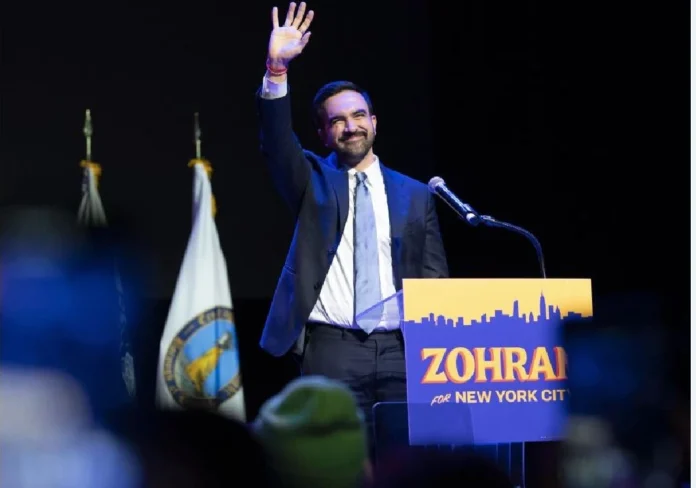By Kenneth Tiven
Election Day in the United States became Rejection Day as voters, weary of President Donald Trump’s erratic behaviour and creeping autocracy, turned decisively towards candidates and causes that rejected the MAGA ideology. Across big and small states alike, Americans cast ballots not just for policies—but for the preservation of democracy itself.
The most striking result came from New York City, where Zohran Mamdani, the Ugandan-born, Indian-rooted, and New York-raised progressive, emerged as mayor-elect of the nation’s largest city. His victory overcame an onslaught of Islamophobic rhetoric and xenophobic attacks that questioned his heritage and faith.
President Donald Trump, in his typically bombastic fashion, dismissed Mamdani as “a communist,” ignoring the nuance that the Democratic Socialists of America—of which Mamdani is a member—are advocates for capitalism with conscience, not its abolition.
A WAVE OF BLUE IN KEY RACES
This election’s “Big Three” contests—the governorships of New Jersey and Virginia, and the mayoralty of New York City—were all won by anti-MAGA candidates by substantial margins. Local elections reflected the same trend: school board incumbents who had championed book bans, culture wars, and anti-equality rhetoric were overwhelmingly ousted.
But perhaps the most consequential result came from California’s Proposition 50, a voter-approved measure that temporarily overturns the state’s law requiring evenly balanced congressional districts. Governor Gavin Newsom’s surprise move was a direct response to Trump’s calls for Republican-led states to gerrymander aggressively—what he called “redrawing for fairness,” but what history knows as voter suppression. The measure passed with a resounding 65 percent “Yes” vote, signalling that Americans are alert to manipulations threatening the foundations of representative democracy.
A NEW KIND OF CANDIDATE
For many voters, Mamdani represented a different kind of political energy: empathetic, digitally fluent, and deeply connected to working-class realities. His platform centred on affordability, housing, and equity, resonating especially with younger voters alienated by establishment politics.
Even more striking was his forthrightness on global issues. In a city with the largest Jewish population outside Israel, Mamdani’s statement that “the destruction of Gaza is both illegal and immoral” was politically risky—but it struck a chord with those tired of silence over human rights. It marked him as a leader willing to speak truth, not just poll-tested slogans.
In his victory speech, Mamdani told cheering supporters: “While we cast our ballots alone, we chose hope together—hope over tyranny, hope over big money and small ideas, hope over despair.”
His transition team—an all-female group of seasoned professionals—has seven weeks to transform campaign ideals into concrete governance. Their task is formidable, especially given President Trump’s threats to withhold federal funding from New York in retaliation for its defiance.
A NATIONAL SHIFT
Beyond New York, the ripple effects are profound. Voters flipped conservative school boards in Pennsylvania and Texas. Mississippi Democrats broke the Republican super majority in their state legislature. Georgia, long a Republican stronghold, saw a string of Democratic victories in statewide offices.
Even the Senate Majority Leader from New York, Charles Schumer, initially hesitant to endorse Mamdani, had to acknowledge the movement’s force when voter turnout broke city records.
Former US President Barack Obama summed up the broader message: “At the end of the day, democracy is about values—what we care about, what we believe, what we prioritize.” If that’s true, then this election showed that American values—empathy, fairness, inclusion—are far from dead. The MAGA cult’s belief that chaos equals strength met its limit. Voters chose to land the plane safely.
—The writer has worked in senior positions at The Washington Post, NBC, ABC and CNN and also consults for several Indian channels


